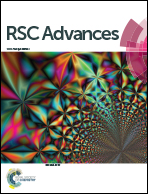Bacterial assisted treatment of anaerobically digested distillery wastewater
Abstract
The present study focused on the treatment of anaerobically digested distillery wastewater (ADSW) by a bacterial method as the high COD (30–35 000 ppm), BOD (8–10 000 ppm), total solids (60–65 000 ppm) and presence of organic compounds even after anaerobic treatment of wastewater indicated that the conventional treatment methods are far from reaching the safe limits for disposal. ADSW consists organic and inorganic compounds that need to be degraded. This study was carried out with a culture rich in Pseudomonas sp., which was more effective and would make the further treatment process easier. The consortia of bacterial culture was taken from DEE soil and ADSW contaminated soil, and the bacteria were grown in Kings B media to enrich the Pseudomonas sp. The bacterial system caused a reduction of the organic pollution load (COD) of ADSW up to 26.05% for ADSW contaminated soil bacteria and 18.15% for DEE soil bacteria. Conventional immobilization of bacteria in sodium alginate also performed to determine the reduction level of pollution in ADSW and the result was compared with free bacterial treatment. This bacterial system can further be combined with other aerobic treatment for enhanced COD reduction.


 Please wait while we load your content...
Please wait while we load your content...